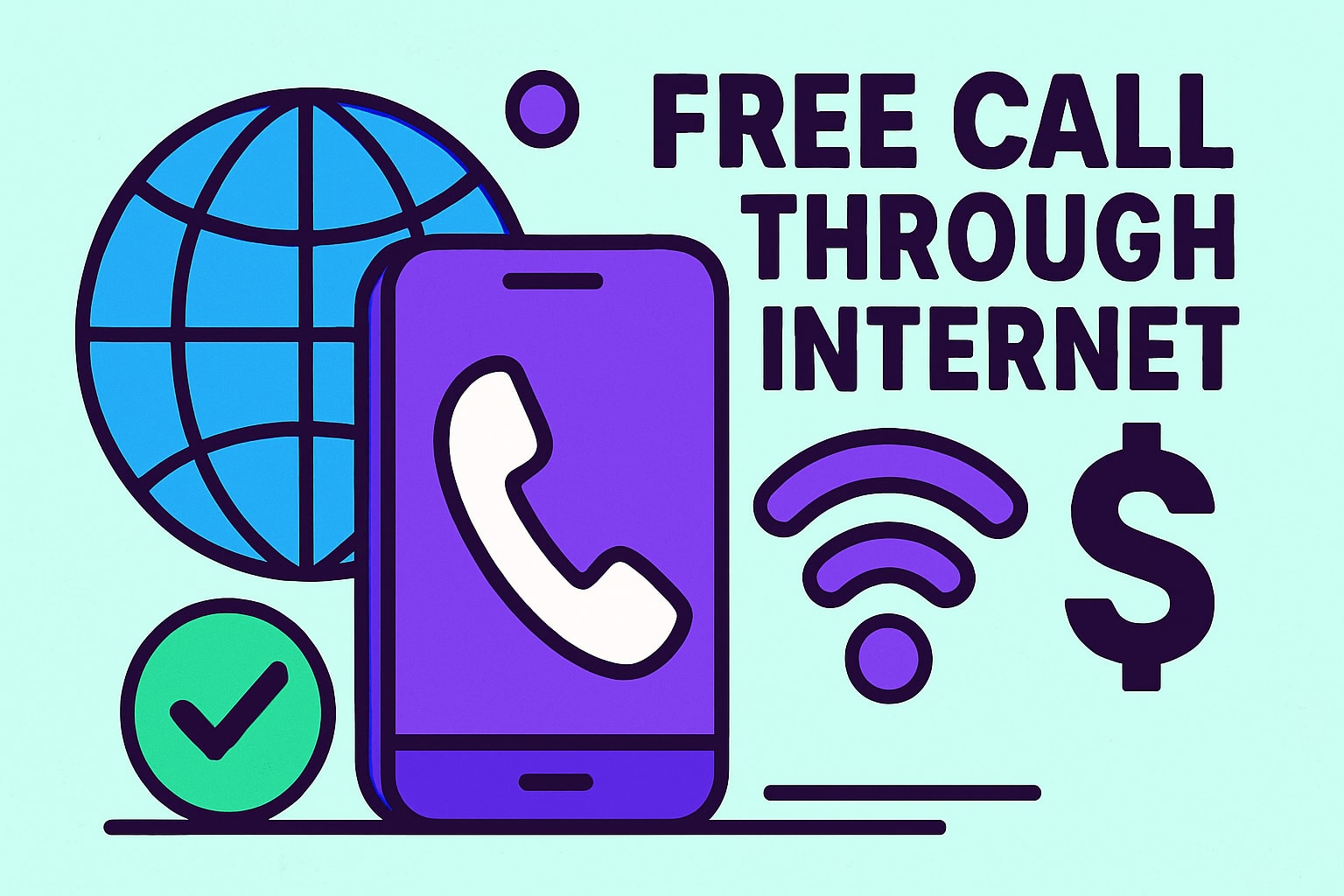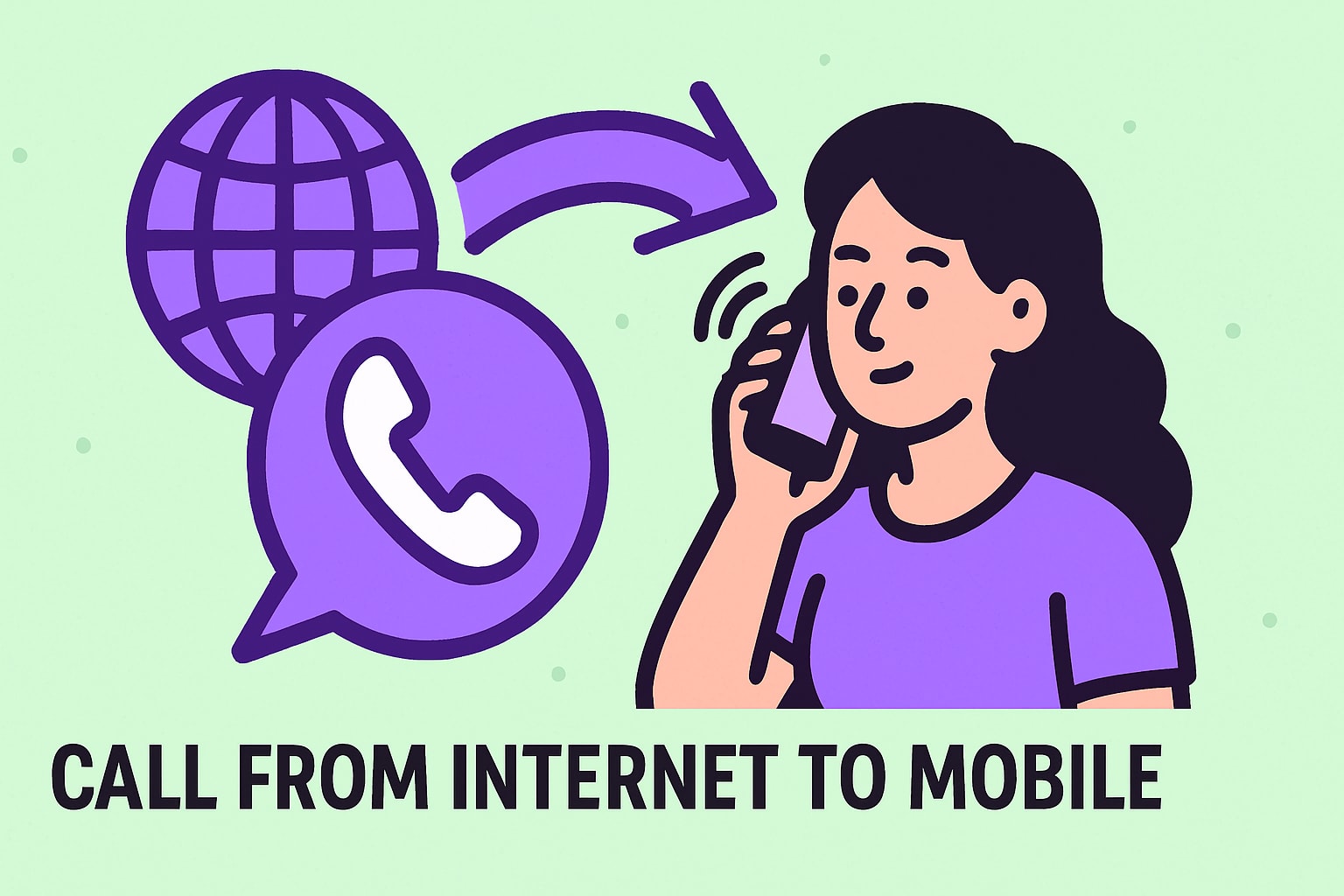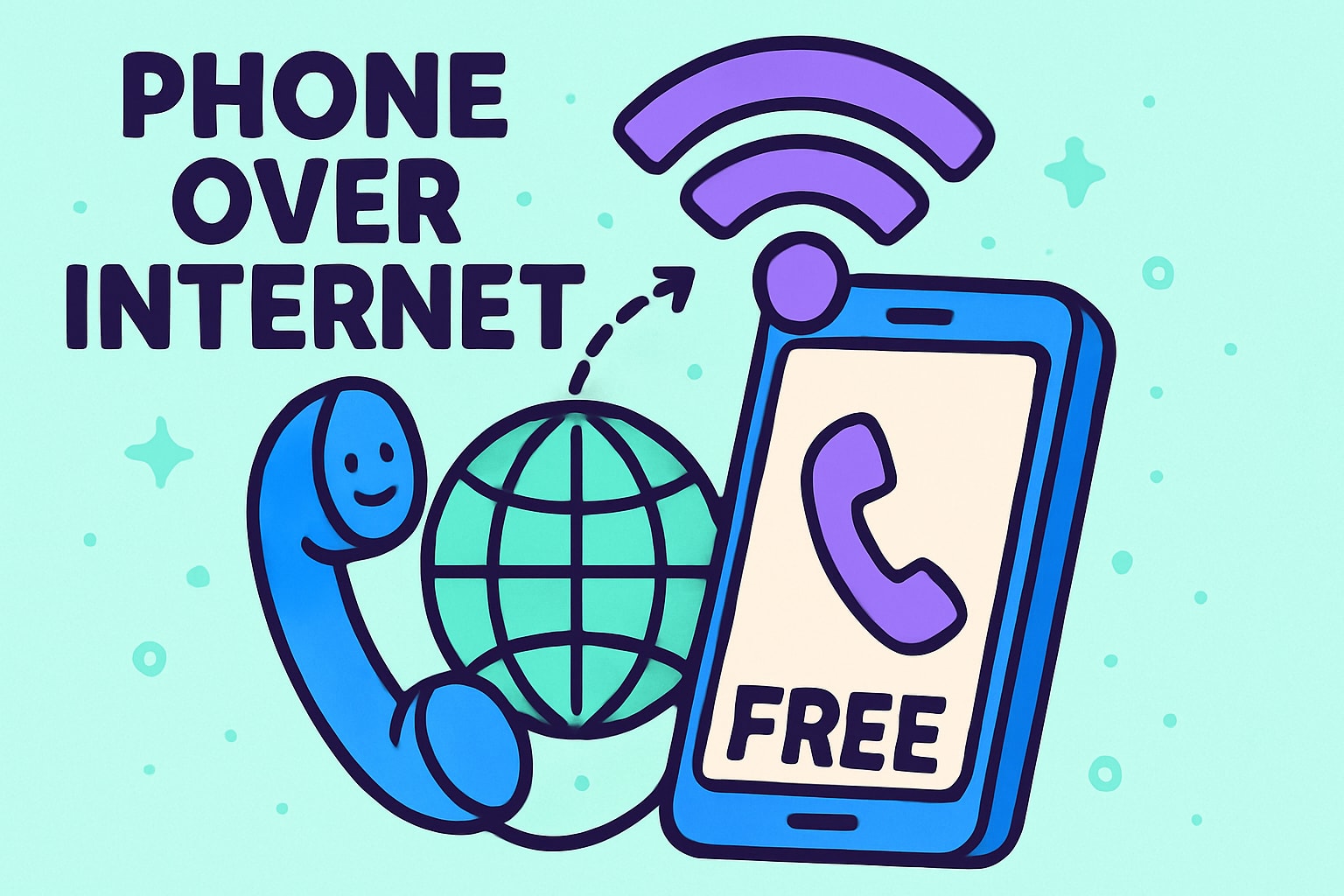In 2025, the demand for free call through internet solutions is at an all-time high. As our world grows more connected, individuals and businesses alike seek ways to communicate across borders without the burden of traditional phone costs.
This article uncovers the seven most essential and effective ways to make free call through internet. Whether you need to stay in touch with family overseas, collaborate with a remote team, or streamline business communications, these methods deliver powerful, accessible solutions.
Discover platforms that offer unique features, unmatched accessibility, and reliable performance. Ready to explore the top options and transform how you connect? Read on for the leading free call through internet methods this year.
Understanding Free Call Through Internet Methods
The rapid growth of digital communication has reshaped how people connect worldwide. Today, free call through internet options serve as essential bridges for personal, business, and international conversations. Understanding the foundations and evolution of these methods helps users choose the best solutions for their needs.
What Are Free Internet Calling Methods?
A free call through internet relies on technologies like Voice over Internet Protocol (VoIP), WebRTC, and Session Initiation Protocol (SIP) to transmit voice or video data over the web. Unlike traditional phone calls, which use physical telephone lines, these methods use internet connectivity to establish connections between users.
Popular platforms—such as WhatsApp, MS Teams, and Google Voice—use these protocols to offer voice and video communication at no additional cost beyond your internet plan. “Free” means there are no per-minute or per-call charges, but an active internet connection is necessary. Some services may have restrictions, such as call duration or availability based on country.
The Evolution of Internet Calling (2015–2025)
The journey of free call through internet solutions has accelerated dramatically over the past decade. In 2015, most calls required desktop software and stable broadband. By 2025, mobile apps and browser-based calling dominate, offering seamless experiences on any device. Improved global internet access has driven mass adoption and made these services accessible worldwide.
Security and call quality have advanced, with encryption and HD audio now standard. The rise of remote work and global teams has further cemented the need for reliable internet calling. The Global VoIP market projected to reach $102 billion by 2025 highlights how these technologies are now integral to modern communication.
Why Free Internet Calls Are Essential in 2025
A free call through internet is more than a cost-saving tool in 2025—it’s a necessity for global connectivity. International work, family ties, and educational opportunities mean people need affordable, reliable ways to talk across borders. Free internet calls reduce expenses for individuals and organizations, making frequent, long-distance communication feasible.
These solutions also improve accessibility for rural and developing regions, where traditional infrastructure may be lacking. Enhanced privacy and security features give users more control over their data. Environmentally, digital-first calling reduces reliance on physical infrastructure, supporting sustainable communication.
Key Considerations When Choosing a Free Internet Calling Method
Selecting a free call through internet method requires careful evaluation. Compatibility across devices and platforms ensures you can communicate seamlessly, whether on mobile, desktop, or browser. Consistent call quality and reliability are crucial for both personal and professional use.
Privacy and data security should be priorities, especially for sensitive conversations. Look for user-friendly interfaces and simple setup processes. Be aware of limitations, such as call duration, ads, or supported countries. Integration with messaging, file sharing, or business tools can further enhance your communication experience.
7 Essential Free Call Through Internet Methods for 2025
In 2025, the landscape of communication is shaped by dynamic, accessible, and secure solutions. The demand for a reliable free call through internet method has never been higher. From personal chats to business meetings, the right tool can bridge continents in seconds.
Below, we examine seven leading platforms for making a free call through internet. Each offers unique features, strengths, and limitations—helping you identify the ideal match for your needs.
1. WhatsApp
WhatsApp stands as the world’s most widely adopted messaging and calling app, making free call through internet connections effortless across the globe. Its core features include end-to-end encrypted voice and video calls, group calling, and seamless compatibility across iOS, Android, and desktop platforms.

Users benefit from a robust global network, integrating messaging and calling in a single app. Free call through internet sessions run smoothly over Wi-Fi or mobile data, with no hidden fees. WhatsApp’s unique selling point is its ubiquity—over 2 billion active users as of 2024 ensure most contacts are just a tap away.
For families, friends, and small businesses, WhatsApp enables quick, secure conversations. Business users can leverage WhatsApp Business for customer communications and support, taking advantage of broadcast lists and automated replies.
Pros:
End-to-end encryption for all calls
Simple user interface
Global reach
Cons:
Requires a phone number for registration
Both parties must use WhatsApp
For anyone seeking a reliable, free call through internet experience, WhatsApp combines security, ease of use, and universal adoption.
2. Yadaphone
Yadaphone revolutionizes the free call through internet experience with its browser-based approach. No app download or phone number is required—users can make international calls directly from any browser, with instant setup.
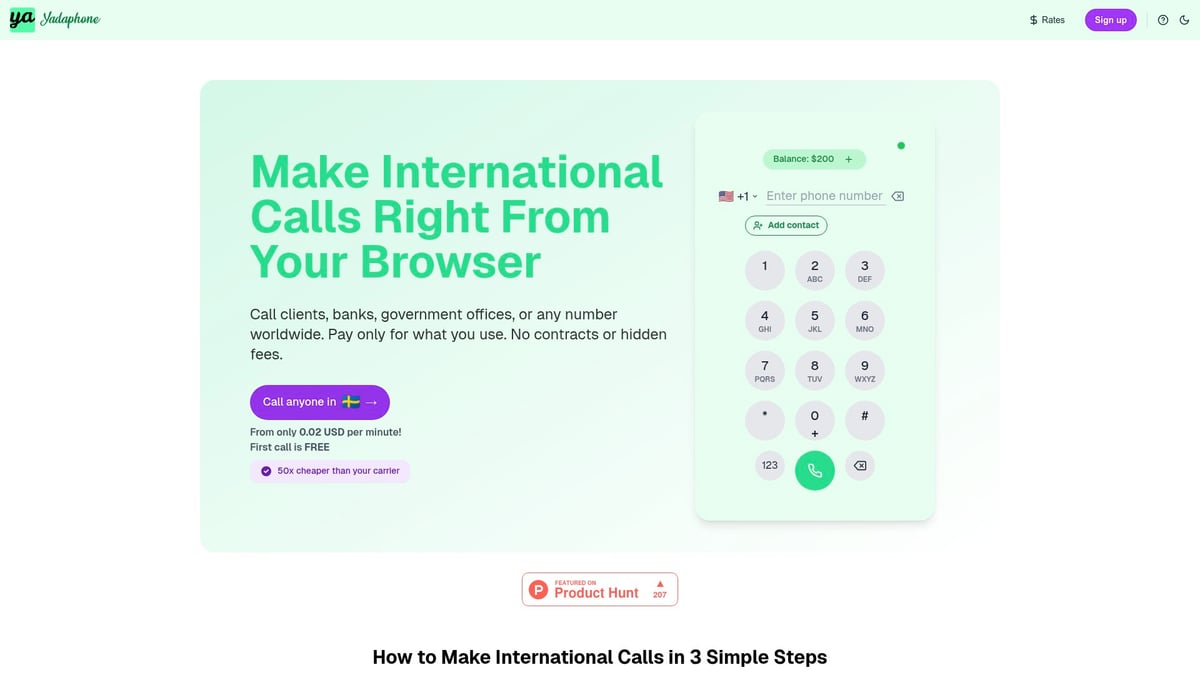
Key features include encrypted calls, virtual phone numbers, and a pay-as-you-go model with a free first call. Businesses and individuals appreciate the ability to call any phone number worldwide, not just app users. Yadaphone offers transparent pricing, team management tools, call recording, and AI transcription.
What sets Yadaphone apart is its accessibility. Anyone can initiate a free call through internet instantly, making it ideal for travelers, expats, or those without traditional apps. Its scalable features suit businesses managing remote teams or global clients. The platform is used in over 150 countries, and you can check global countries call availability to see supported destinations.
Pros:
No app or phone number needed
Global reach
Secure, browser-based access
Cons:
Free usage limited to first call
Pay-as-you-go charges after trial
Yadaphone is a standout choice for users who value flexibility, security, and the freedom to make a free call through internet without traditional barriers.
3. Google Voice
Google Voice delivers a streamlined free call through internet solution, especially for users in the United States and Canada. Its main features include free domestic calls, affordable international rates, voicemail transcription, call forwarding, and deep integration with Google Workspace.

The service provides a single number for all devices, making it easy to manage calls across smartphones, computers, and tablets. Advanced spam filtering and voicemail management add to its appeal. Google Voice is particularly well-suited for remote workers, freelancers, and small businesses needing a unified communication hub.
Pros:
Free calls within US and Canada
Unified number for multiple devices
Rich feature set with Google integrations
Cons:
Limited to select countries
Google account required
With over 10 million downloads on Android, Google Voice remains a trusted free call through internet platform for those within its supported regions.
4. MS Teams
Microsoft Teams is a pioneer in the world of free call through internet technology, offering reliable audio and video calls, group meetings, instant messaging, file sharing, and screen sharing. Its cross-platform support ensures users can connect via Windows, Mac, Linux, iOS, and Android.
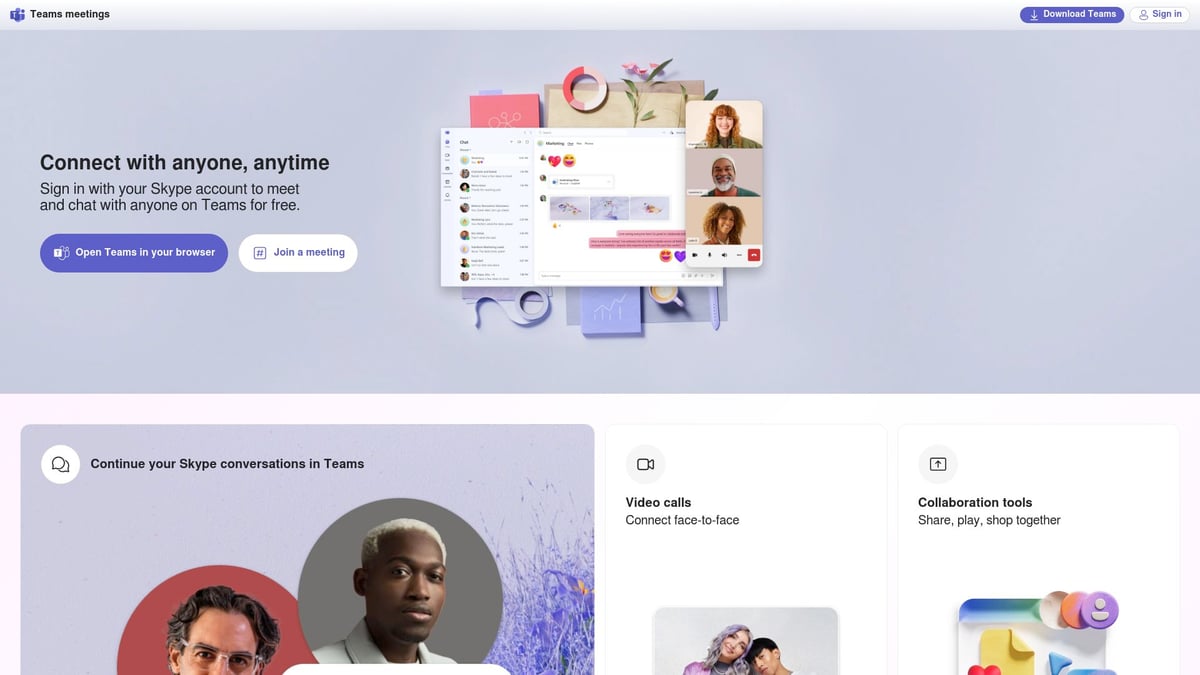
One of Teams' strengths is its ability to host large group calls, making it popular for international families and remote teams. Teams-to-Teams calls are free, while paid options enable calls to landlines and mobiles worldwide. Integration with Microsoft Teams adds value for professional users.
Pros:
Familiar interface
Versatile for personal and business use
Strong video call features
Cons:
Teams-to-phone calls are not free
App download required
With over 300 million monthly active users, Teams remains a top free call through internet option for both personal and professional communication.
5. Signal
Signal is the gold standard for privacy-focused free call through internet solutions. It offers end-to-end encrypted voice and video calls, secure messaging, and group calling on an open-source platform. Its commitment to privacy means no ads, no trackers, and transparent data handling.
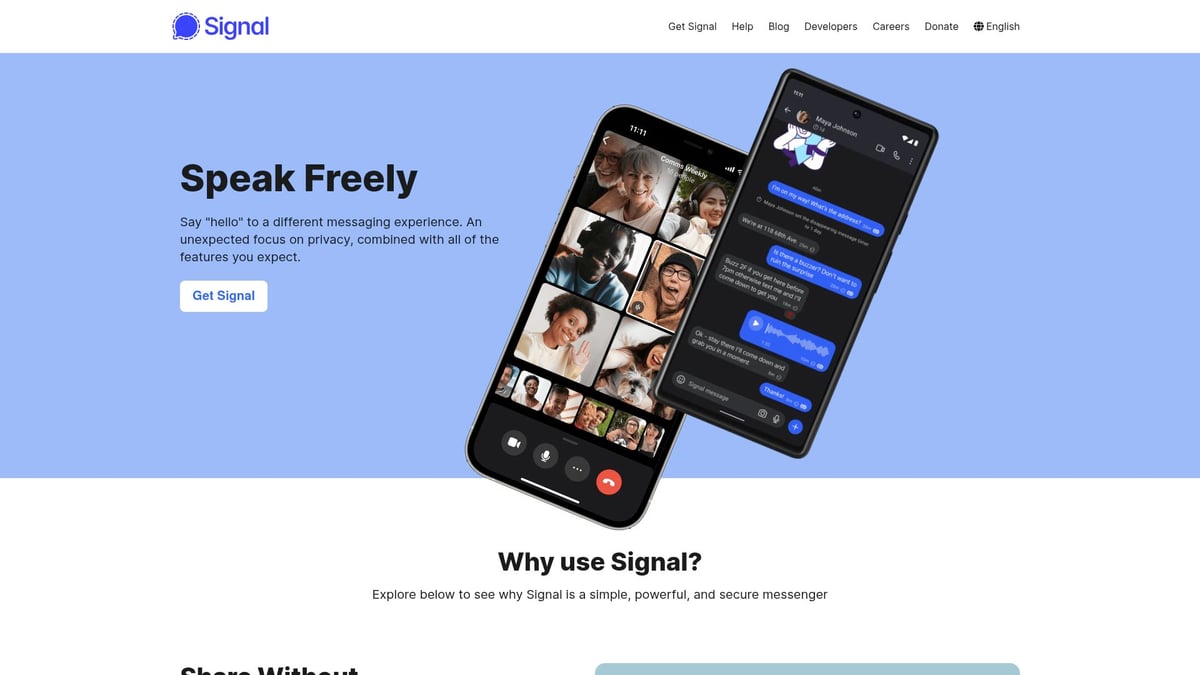
Signal’s user base includes journalists, activists, and anyone prioritizing digital security. The app is available on iOS, Android, and desktop, ensuring cross-platform accessibility. While it requires a phone number for signup, all communications are protected by advanced encryption.
Pros:
Strongest privacy and security
Free and open-source
Recommended by privacy advocates
Cons:
Smaller user base
Requires phone number for registration
Signal is endorsed by privacy experts and is an excellent choice for users who need a secure free call through internet platform.
6. Viber
Viber is a fun, user-friendly free call through internet app that connects over a billion users worldwide. It supports free Viber-to-Viber calls, group calls, file sharing, stickers, and vibrant Viber Communities for large group chats.
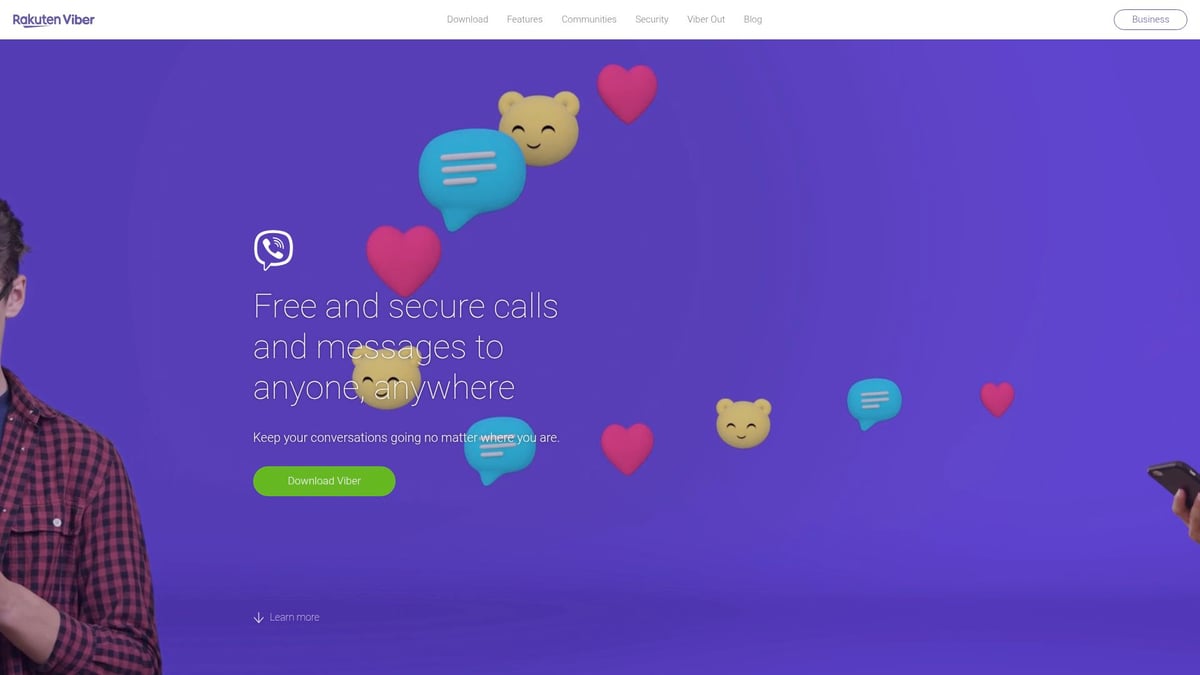
End-to-end encryption and a lively interface make Viber popular among international friends, families, and social groups. The app also offers Viber Out for affordable calls to landlines and mobiles outside the Viber network.
Pros:
Free and secure
Rich feature set, including group chats
Strong international presence
Cons:
App download required
Calls to non-Viber numbers are paid
Viber combines entertainment and reliability, providing a powerful free call through internet experience for social and global connections.
7. Facebook Messenger
Facebook Messenger leverages the massive reach of Facebook to offer free call through internet functionality. Users can make voice and video calls, participate in group chats, and sync messages across devices. No phone number is needed—just a Facebook account.
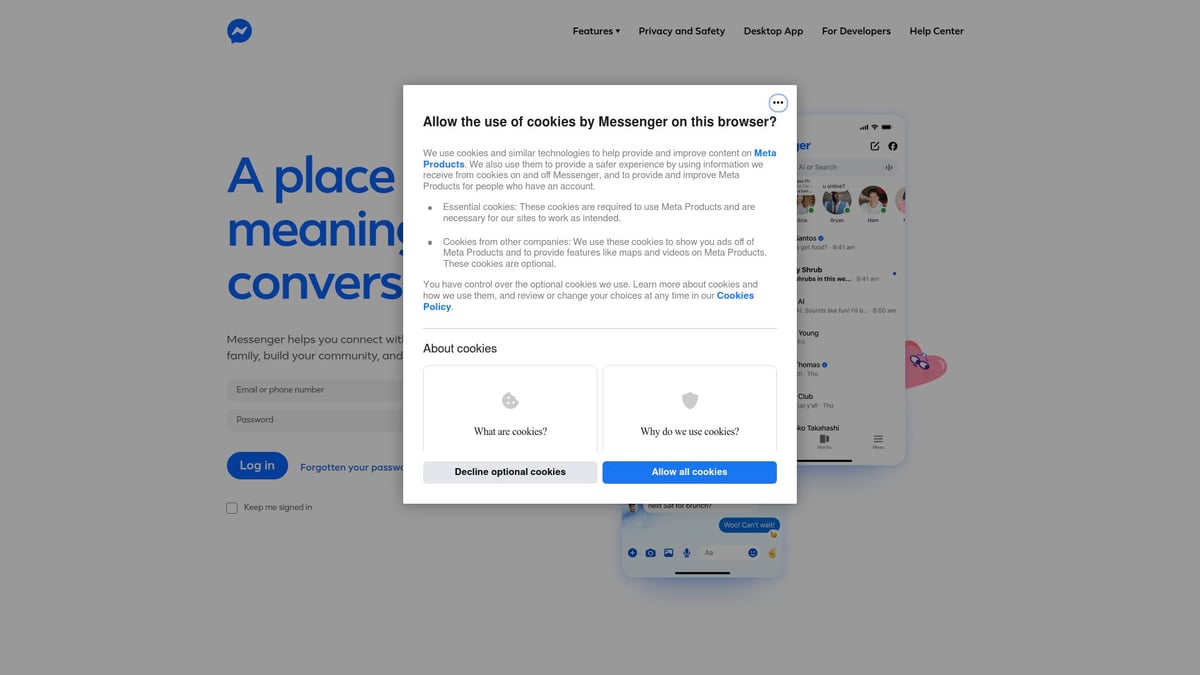
Messenger is ideal for social communication, customer service, and connecting with friends globally. Businesses benefit from Messenger API integration, while users enjoy an intuitive, accessible interface.
Pros:
Ubiquitous and easy to use
No phone number needed
Integrates with Facebook features
Cons:
Privacy concerns
Requires Facebook account
With nearly a billion monthly active users, Facebook Messenger remains a leading free call through internet platform for both social and business needs.
Comparing Free Internet Calling Methods: Features, Pros & Cons
Choosing the best free call through internet solution can be challenging with so many options available. By comparing features, security, user experience, and limitations, you can find the service that fits your specific needs, whether for personal or professional use.
Feature Comparison Table
To help you evaluate each free call through internet method, here’s a side-by-side comparison of their most important features:
Service | Device Compatibility | Call Quality | Security | Group Calling | Global Reach | App/Browser Requirement | Phone Number Needed |
|---|---|---|---|---|---|---|---|
iOS, Android, Desktop | High | End-to-end | Yes | High | App | Yes | |
Yadaphone | Any Browser | Very High | Encrypted | Yes | Very High | Browser | No |
Google Voice | Web, iOS, Android | High | Google-level | Yes | Limited | App/Browser | Yes |
Teams | Desktop, Mobile, Web | High | Encrypted | Yes | High | App/Browser | Yes |
Signal | iOS, Android, Desktop | High | End-to-end | Yes | Medium | App | Yes |
Viber | iOS, Android, Desktop | High | End-to-end | Yes | High | App | Yes |
Facebook Messenger | Web, iOS, Android | High | Encrypted | Yes | High | App/Browser | No |
As you can see, every free call through internet method offers group calling and multi-device support, but only some work directly from a browser or without a phone number.
Security and Privacy Considerations
Security is a top priority for anyone using a free call through internet service. Most leading platforms use strong encryption, but the level and transparency can vary.
End-to-end encryption: WhatsApp, Signal, and Viber provide end-to-end encryption for calls and messages, ensuring only you and your contact can access content.
Data privacy: Signal stands out as open-source and does not track users. Other services like Facebook Messenger and WhatsApp have faced scrutiny over data handling.
Business-grade security: Yadaphone and Teams offer encrypted calls and business features, but always review privacy policies before sharing sensitive information.
When privacy is critical, choose a free call through internet solution with full encryption and transparent policies. This is especially important for journalists, activists, and remote teams.
User Experience and Accessibility
An ideal free call through internet platform should be intuitive and accessible for all users, regardless of technical skill or device.
Easy setup: Services like Yadaphone require no download or phone number, making instant access possible from any browser.
Device flexibility: WhatsApp, Viber, and Facebook Messenger support both smartphones and desktops, while Google Voice and Teams offer browser-based options for added convenience.
Business integration: Some platforms, such as Teams and Google Voice, integrate with productivity tools for seamless workflow management. For companies seeking robust solutions, enterprise internet calling solutions provide advanced features tailored for team collaboration.
Choose the free call through internet method that best fits your daily habits and accessibility needs.
Limitations and Potential Downsides
No free call through internet service is perfect. Most come with certain restrictions and trade-offs.
Call duration and ads: Some platforms limit call length or display ads during use, which can affect call quality and experience.
Supported countries: Not all services offer free calling worldwide. For example, Google Voice is mainly for the US and Canada. For international calling, always check each provider’s coverage and international call rates overview.
Connectivity: Call quality depends heavily on your internet connection, and disruptions are possible in areas with poor coverage.
Business vs. personal use: While many options work for families and friends, businesses may require features like call recording, team management, or compliance tools.
By weighing these limitations, you can select the free call through internet solution that aligns with your communication goals.
Future Trends in Free Internet Calling (2025 and Beyond)
In 2025, the landscape for free call through internet solutions is rapidly evolving. New technologies, changing user demands, and global connectivity are driving innovation. Let’s explore the trends shaping the future of internet-based calling.
AI and Smart Features in Internet Calling
Artificial intelligence is transforming the experience of free call through internet platforms. Expect smarter voice and video calls with real-time noise cancellation, live language translation, and instant call transcription. These features are already reshaping user expectations, making calls clearer and more accessible.
AI is also revolutionizing customer support. According to recent research, AI is projected to power 95% of customer interactions by 2025, highlighting its central role in internet calling services. Users benefit from automated assistance, predictive call routing, and more personalized communication, setting a new standard for digital conversations.
Integration with Other Digital Services
Modern users increasingly want their free call through internet tools to work seamlessly with messaging, file sharing, and productivity apps. Unified communication platforms are on the rise, enabling effortless switching between chats, calls, and collaborative tasks.
This integration improves workflow for businesses and remote teams. Features like shared calendars, document editing, and instant notifications are now standard, blurring the boundaries between calling and other digital services. As a result, users experience more efficient and connected communication across all devices.
The Role of Web-Based and App-Free Calling Solutions
Demand for browser-based, app-free free call through internet solutions is accelerating. Services like Yadaphone offer instant access without downloads, making online calling more accessible for users with limited storage or device restrictions.
Web-based platforms enhance privacy and security by minimizing app-based vulnerabilities. Instant setup appeals to travelers and professionals who need flexibility. As technology advances, expect broader adoption of these solutions, with further improvements in call quality and global reach on the horizon.
If you're ready to experience the freedom and convenience of internet calling in 2025, why not put what you’ve learned into action? With solutions like Yadaphone offering secure, instant browser-based calls—no downloads or sign-ups required—you can stay connected globally, whether for work or personal conversations. Making your first free call is quick and easy, allowing you to see firsthand how accessible and reliable these modern communication tools have become. Take the next step and Make free call now—connecting across borders has never been simpler.
